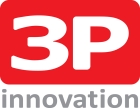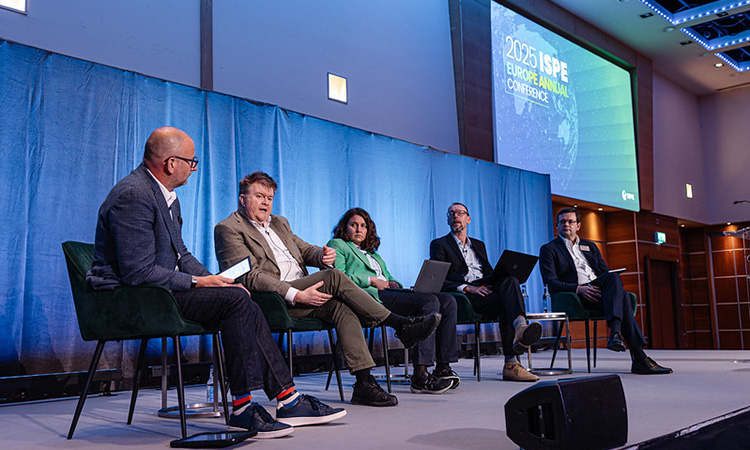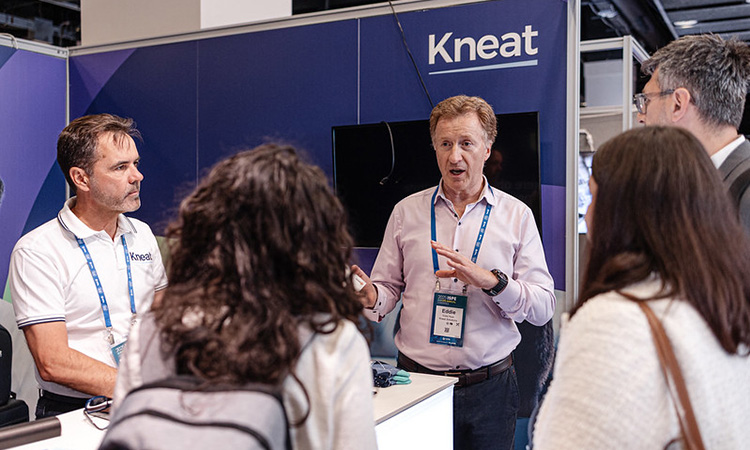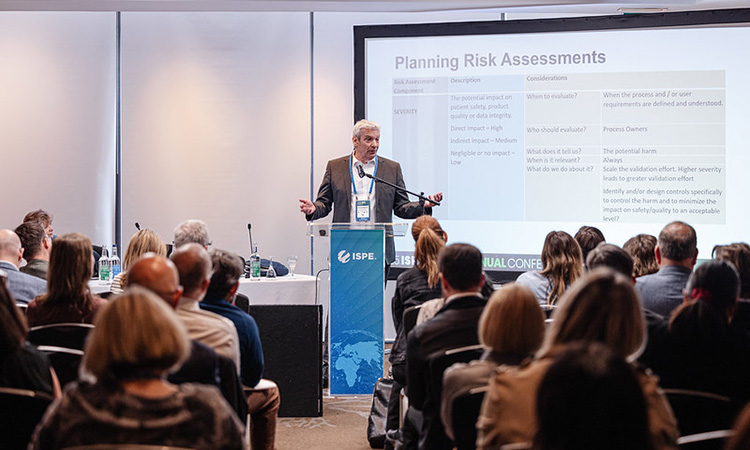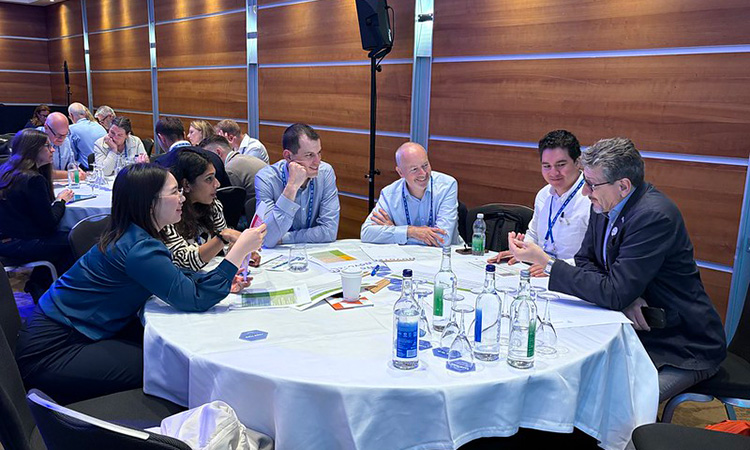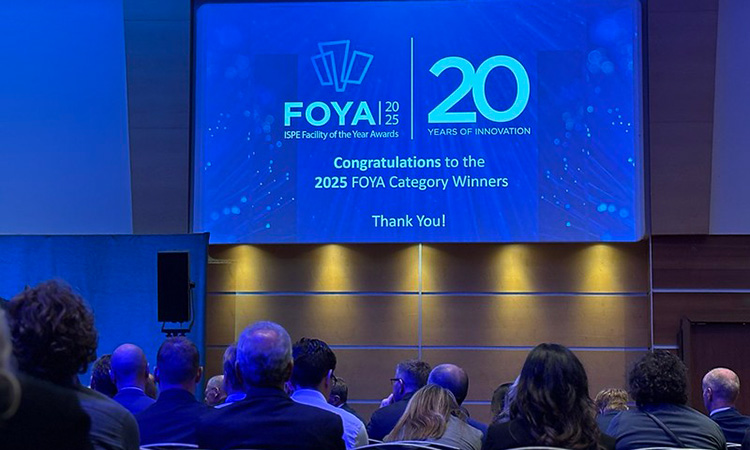

2025 ISPE Europe Annual Conference
Thank you to all who made the 2025 ISPE Europe Annual Conference such a big success!
Thank you to all who made the 2025 ISPE Europe Annual Conference such a big success!
Please Note:
- All full-access registration (virtual & in-person) includes access to speaker presentations, on-demand content, and other conference material.
- NOTE: Material is only available from those speakers/companies that permitted distribution.
- Registrants will receive email notification when the on-demand content is available.
- On-demand content is accessible for 90 days.
Top Industry Thought Leaders at the 2025 ISPE Europe Annual Conference.
What You Missed at the 2025 ISPE Europe Annual Conference
Disasters—whether man-made or natural disasters—pose significant threats to patient safety, data integrity, and business continuity. This keynote examines how GxP-regulated companies can prepare for and respond to these challenges, focusing on recent examples such as the war in Ukraine and floods in Spain, and the Czech Republic. We’ll explore the immediate impacts of these events, including disruptions to infrastructure, supply chains, regulated data, and outsourced services, while also addressing their toll on staff through stress, altered working conditions, and personal hardships.
Featured Speakers
GMP Inspector
MHRA
Senior Medicines and Medical Device Shortage Specialist
European Medicines Agency
Lead Senior GMDP Inspector
MHRA
Patient Advocate
Patient Advocate
Lead Scientific Officer
EMA
Expert GMP Inspector
MHRA
Head of Quality and Safety of Medicines
EMA
GMP Inspector
AGES - Austrian Agency for Health and Food Safety
Market Compliance Manager & Senior GMP Inspector
Health Products Regulatory Authority (HPRA)
Associate Director, KojoX & Technology Development
FUJIFILM Diosynth Biotechnologies
Deputy Director Standards and Compliance
MHRA
Senior Manager, PSC Global Engineering
GSK
Director, Science Policy
EFPIA
Conference Highlights

Disaster Recovery in the Pharmaceutical Industry: Lessons Learned from Conflict and Catastrophe
In the pharmaceutical industry, disaster recovery is not just about protecting business continuity; it is about safeguarding patient safety, data integrity, and the entire supply chain. The increasing complexity of global pharmaceutical operations exposes companies to a broad spectrum of risks, ranging from man-made disasters such as geopolitical conflicts to natural disasters that can cripple entire infrastructures.

Good Engineering Practice in Investment Management: Optimizing Pharma for the Future
What does it take to stay ahead in the volatile and fast world of pharmaceutical manufacturing? How do we ensure to invest smartly into the future? Join ISPE at the 2025 ISPE Europe Annual Conference, in London, United Kingdom, to hear about why the industry needs to look beyond just acquiring the latest, cutting-edge technology and how good engineering practices drive efficiency, compliance, and long-term sustainability of production sites and projects.

Sustainability Track – Building a Sustainable Future: A Pharmaceutical Engineering Perspective
The 2025 ISPE Europe Annual Conference, taking place 12-14 May in London, United Kingdom, will feature a track dedicated to sustainability. This track will explore the critical and contemporary topic of sustainability through the lens of pharmaceutical engineering. The track will delve into the challenges of embarking on the sustainability journey, providing valuable insights from case studies, roadmaps, and perspectives that address the hurdles to achieving low-impact production.
International Program Committee
Chair
Director
TenTenTen Consulting Ltd
International Board Liaison
Senior Director, Global Engineering & Technology
Johnson & Johnson
Affiliate Liaison
Director - Global Engineering Operations & Strategy
GSK
Women in Pharma Liaison
Contracts Manager
FFG Group of Companies
Director, CSV Auditing (Computerised Auditing Lead)
Kyowa Kirin International
Senior Expert & Consultant Pharmaceutical Eng & PM
ISPE D/A/CH
Global Pharma Chief Technology Leader
Wood Plc
Head Life Sciences Process Department
Technip Energies
Senior Consultant Aseptic Processing & Containment
SKAN AG
Fellow - Digital Technology, Associate
CRB
Regulatory Advisor
ISPE
Technology Manager Biotechnology
CRB Group GmbH
Senior Executive Consultant
Q-FINITY Quality Management
Qualified Person - Plant Manager
Lab. GP-Pharm
Founder & CEO
LifeBee | a ProductLifeGroup Company
Digital Strategy Director
Galapagos
Senior Director, External Affairs, Regulatory Policy and Intelligence
Novo Nordisk
Technical Director - GMP / Regulatory Compliance
PM Group
Chief Strategy Officer
CAI
Executive Industry Advisor
Körber Pharma Software GmbH
Emerging Leader
Data Integrity - CSV Engineer
BLENDED Consulting BV
Emerging Leader
Process Engineer MS&T Drug Substance
Takeda
Emerging Leader
Project Manager
Bayer AG (Supply Center Grenzach)

